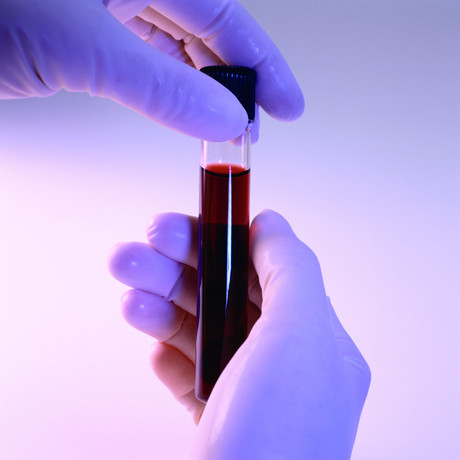QIAGEN and Clinical Genomics partner on liquid biopsy for colorectal cancer

QIAGEN, a global provider of sample and assay technologies, has announced the implementation of the PAXgene Blood ccfDNA Tube with Clinical Genomics’ Colvera colorectal cancer (CRC) recurrence assay, enabling blood to be drawn and stored for several days before testing.
Clinical Genomics is the sole US provider of Colvera, a PCR-based assay that detects hypermethylated BCAT1 and IKZF1 DNA in the blood of patients. It can thus be used to detect tumour DNA, presenting an opportunity for doctors to improve survival rates after surgery by detecting recurrence of colorectal cancer earlier and more accurately.
The liquid biopsy solution is designed to enable easy monitoring for colorectal cancer with a simple blood test collected in a physician’s office, which can be administered along with other CRC surveillance tests. It has been demonstrated to detect more than twice the number of CRC recurrence cases compared to the current guidelines-recommended blood test.
“Colorectal cancer outcomes improve with early detection, but currently available monitoring tests frequently fail to detect disease at a point when clinical intervention can be effective,” said Lawrence LaPointe, president and CEO of Clinical Genomics.
“Colvera is a new test that can detect molecular changes in circulating tumour DNA associated with cancer development. Colvera provides physicians with actionable information that can trigger further clinical assessment. The overall aim is to improve survival through early detection.”
PAXgene technology, meanwhile, offers highly integrated and automated solutions for the collection, stabilisation and purification of circulating cell-free DNA from blood samples. Developed by QIAGEN/BD joint venture PreAnalytiX, it allows whole blood to be drawn and stored at cooled and ambient temperatures for up to seven days before samples are processed and tested for the presence of circulating cell-free DNA.
Clinical Genomics and QIAGEN recently demonstrated that PAXgene ccfDNA yield and Colvera assay performance is equivalent to the performance from blood samples collected in EDTA tubes, spun down to plasma and frozen within eight hours of collection, with the PAXgene process demonstrating ease of use and robustness. Their findings will be presented in a poster at the Association for Molecular Pathology (AMP) Annual Meeting, to be held from 16–18 November in Salt Lake City, Utah.
“We are extremely pleased to use the highly automated QIAsymphony PAXgene Blood ccfDNA collection and sample processing workflow for collection and handling of Colvera samples,” said LaPointe.
“We are excited to roll out the PAXgene System as the front-end solution to allow physicians to provide Colvera testing to CRC patients as conveniently as possible. PAXgene allows a simple blood collection at the physician’s office, with no on-site processing required, which is a great step forward from our alternative sample collection methods.”
Colvera has separately been announced as a finalist in the Johnson and Johnson Innovation in Medical Research category of the 2017 Australian Museum Eureka Prizes. The winners of the awards will be revealed at the end of August.
Blood-based biomarker can detect sleep deprivation
The biomarker detected whether individuals had been awake for 24 hours with a 99.2% probability...
Epigenetic signature helps to diagnose rare breast tumour
The current way of diagnosing phyllodes tumours is to analyse their cellular features under a...
New instrument measures cardiovascular disease biomarkers
CVD-21 enables a 'liquid cardiovascular biopsy' for quantification of multiple...







